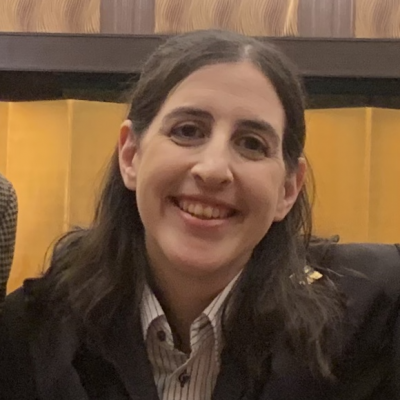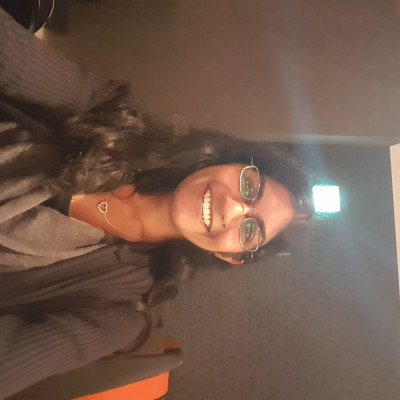Sessions / Zoom 7



International PhDs about Pragmatics in Progress #1226
The importance of pragmatics can be seen in the work of graduate students from around the world. Our Forum features Anh Ton Nu, a Vietnamese teacher working on her PhD through Macquarie University in Australia. She is focused on including pragmatics in teacher education for Vietnamese high school teachers. The other panelist is Hind Baadache from the University of Biskra in Algeria, and she is investigating why students have difficulty making requests politely. For short, our forum can be called, PPP—Pragmatics in PhDs in Progress.


Academic dishonesty in Japan: A cautionary tale #1279
The digital age, in particular, ubiquitous access to the Internet has revolutionized every aspect of language education. Often with just an app on their smartphone, students are now able to improve their vocabulary knowledge, reading ability, grammar, and even pronunciation. However, the downside of digital technology is that it also enables unscrupulous students to find novel ways to cheat. Common methods of cheating by students include the use of translation software, Line groups in which students share answers with each other, and even purchasing answers from online marketplaces. In this session, the presenters will discuss a specific incident in which over 1400 students from 90 institutions in Japan were caught cheating on Xreading, a popular online platform for extensive reading. They will explain how the cheating was discovered, and the surprisingly wide range of reactions from academic institutions after they were informed about their students’ misbehavior. Finally, based on their experience, the presenters will provide useful tips to minimize cheating, detect cheaters, and the most effective ways to deal with students who have been caught cheating.


多読実践後の英文読書に対する態度について #1377
Nishizawa et al. (2010)では、英語運用試験のスコアや英語の運用能力に、顕著な向上が見られるには、授業時間外も継続的に英文読書を続ける必要があることが示されている。そのためには、学生が英文読書に対して肯定的な印象を受ける必要がある。本研究は、令和2年度秋学期に大学1年生対象の共通科目の英語の授業(2クラス39名)で実施された。研究参加者はEichhorst and Shearon (2013)で提案された方法をベースに、60分の英語多読学習を14週に渡って行い、毎週の読書量が評価の対象となった。本発表では多読授業の実践とその運用方法について報告を行う。さらに、15週目に実施したアンケートの結果を分析し、多読が学生の読書に対する態度にどのような影響を与えるのかを考察する。

Practice Tasks for Speech Acts in Textbooks #1354
The importance of practicing the pragmatic information provided in the textbooks has been emphasised and the lack of tasks to support such practice in ELT textbooks has been pointed out (McGroarty & Taguchi, 2005; Shimizu et al., 2007, 2008). Using textbooks is only a way to provide novice level EFL learners with opportunities to practice language. They may feel comfortable in practicing with the use of textbooks in the classroom environment. This study explores five beginner level internationally used commercial ELT textbooks and seven EFL textbooks used in Japanese senior high schools as to presentation of practice tasks which include speech acts. The outcomes of the study reveal differences between these two sets of textbooks as to 1) particular types of speech acts which can be commonly practiced in the textbooks; 2) how communicatively these speech acts are treated in the tasks. At the same time, the weakness of the tasks provided in each set of textbooks is discussed in terms of developing learners' pragmatic competence. Finally, some practical suggestions are made as to adapting textbooks for pragmatic instruction.

How to Instruct EFL Listening Diagnostically #1312
In this session, how to instruct EFL listening based on theories and evidence is presented with practical teaching examples and listening strategies: Cognitive Psychology Theory of Anderson (2014) and Human Information Processing Theory of Schneider & Shiffrin (1977).
Many instructors do not often note the difference between testing and instructing when teaching listening in English. The most common method is that learners listen to English and the answers are given possibly with the audio script, the translation and the word list. The learners are often told to listen to the audio repeatedly until they fully understand it in case they have any mistakes.
However, this procedure is testing but NOT INSTRUCTION since where and why comprehension breaks down and how to overcome the problems are not specified. In this session, it is clearly pointed out that testing and instructing are NOT the same.
By the end of this session, those who attend will be able to instruct: - where learners’ comprehension breaks down and why - how to overcome the problems.
Question time is allocated at the end so that those who attend can ask about any unclear issues.




Listening SIG Showcase #1243
The forum will be divided into three parts. The first part will showcase the Listening SIG. This will include outlining our communication, events, and publication initiatives. The second part will consist of a guest speaker, presenting recent research conducted in the area of listening. The third part will invite SIG members and guests to share their own experiences, stories, and accounts of research developments pertaining to field of second language listening. We hope end with an open discussion between the SIG representatives to find connections between listening and the different SIG groups.





JALT ER Sig Forum - Extensive Reading in Languages other than English #1240
Four speakers will present in this Forum.
Kimberley Rothville will speak about her work collecting resources for extensive reading in Japanese and the difficulty of finding sufficient materials at the right difficulty levels for learners. Although there is a great wealth of material available for English language learners for extensive reading, the same cannot be said for Japanese. When collecting materials for Japanese learners for extensive reading, there are three main problems to overcome. Firstly, there are few Japanese materials developed for the purposes of extensive reading, meaning that any extensive reading programme cannot avoid using native speaker materials. Secondly, the materials specifically developed for non-native speakers for ER are often based on the vocabulary list published as a guide for the Old Japanese Language Proficiency Test, rather than the frequency of vocabulary in texts produced for native Japanese speakers. There are therefore many questions about the extent to which these texts overlap with “real world” texts, and how well they prepare students to read texts written for native speakers. Finally, the vocabulary knowledge of learners of Japanese with regard to the most frequent Japanese words is unknown, meaning that the overlap between their word knowledge and the different materials available is also unclear.
Jared Turner and John Pasden will talk about the creation graded materials for the learning of Chinese. Successful application of extensive reading assumes the L2 learner will be able to infer the meaning of unknown words provided there is sufficient comprehensible context for the reader. However, the Chinese logographic writing system presents situations where even if a reader is able to infer a probable meaning of a given character, they are still unable to produce an oral representation of the character or, in other words, “match a sound with the squiggle.” Except for advanced learners, it is near impossible for most learners to decode a character that has not been actively studied. John Pasden and Jared Turner of Mind Spark Press, publisher of the Mandarin Companion Chinese graded reader series, have published 17 Chinese graded readers for L2 Chinese learners. Pasden and Turner will discuss how a leveling system was developed from a corpus of L2 Chinese language instructional materials, how stories are selected for the writing process, how new or unknown characters are introduced into stories, the double-edged sword of pinyin (the official romanization of standard Mandarin Chinese), and the writing, editing, and review process required to produce Chinese graded readers that are comprehensible and engaging to L2 Chinese learners. Jared Turner will speak about his work on developing graded reading materials for the learning of Chinese.
Mitsue Tabata-Sandom will open by suggesting extensive reading in Japanese is in its infancy, compared to that of English. NPO Tadoku (ER) Supporters, pioneers in Japanese graded reader (GR) publishing, had published 134 hard copies of GRs at six levels by 2016. Although other groups have added, or are trying to add, more hard copy GRs, there is a definite shortage of Japanese graded readers. The endeavour of publishing hard copy Japanese GRs seems to constantly face reluctance by publishers due to its limited market. In response to such an undesirable situation, some researchers including this presenter have started providing Japanese GRs online. Beneath these steady efforts of increasing the number of Japanese GRs are fundamental problems. They include a weak awareness of the importance of level appropriacy, a lack of word lists based on a reliable corpus, a shortage of competent writers who can create beginner materials, insufficient funds to secure illustrators, and an ironic situation that the availability of free online GRs keeps some teachers from obtaining hard copy GRs. In this talk, the presenter shares her experiences of providing level appropriate online GRs, using her peer’s corpus of Japanese written words for her ER website, while reporting what her fellow Japanese GR creators go through.
Sophie Muller will share her experience translating the Cengage Foundation Reading Library series written by Rob Waring and Maurice Jamall into French. She hopes to highlight that beyond translation, a thorough work of grading or leveling is required to make the translations adequate material for extensive reading. She will explain the work done for vocabulary, grammar, proper names and pictures in order to inspire similar endeavors for other languages which are lacking true beginner stories.

Xreading: What’s New and What’s Next #1518
Promotional Visit the englishbooks.jp pageXreading, is a digital library that provides students with unlimited access to over thousand graded readers, and allows teachers to track their students' reading progress. The system is constantly evolving and growing in terms of the number of books and features. In this presentation, the founder of Xreading will explain the new functionality that has been added over the past year, and what is planned for the future. Current users of the system are encouraged to provide feedback and suggestions based on their experience.